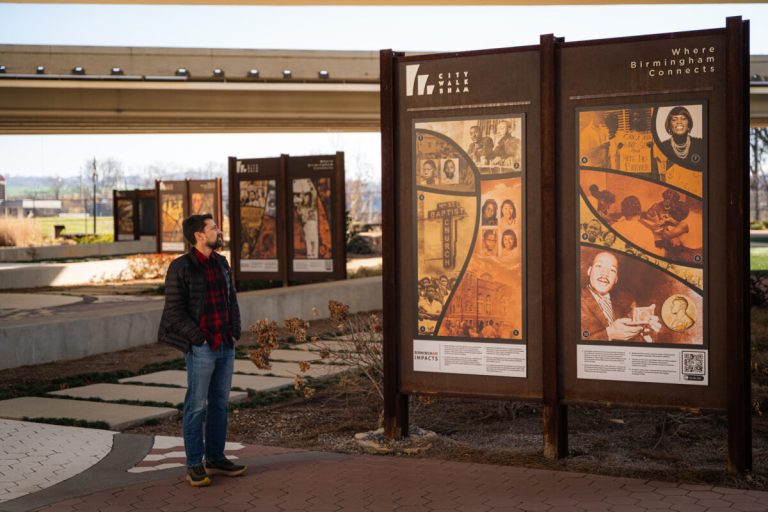UAB offers NEW clinical trial for treatment of COVID-19—among first in the country
Reading time: 4 minutes

“It’s amazing—it’s beyond impressive,” said Dr. Pankaj Arora at a daily briefing regarding UAB’s new clinical trial for COVID-19. UAB is selected to begin enrolling patients in a groundbreaking study using inhaled nitric oxide (iNO) to treat patients with severe COVID-19.
The basics of the trial—iNO

“The gas is typically used in patients with severe failure of lungs and as you may know, the leading cause of death in COVID-19 is failure of the lungs.”
Pankaj Arora, M.D., assistant professor with UAB’s Division of Cardiovascular Disease
Here it is in layman’s terms. According to UAB, iNO improves the blood flow to those areas of the lung that are receiving air. More blood flow means boosting the amount of oxygen circulating the bloodstream.
While this is happening, it also reduces the work of the right side of the heart—which is under extreme stress during conditions of lung failure.
So that makes sense, but isn’t COVID-19 a viral infection?
Yes, iNO has been used to treat failing lungs as Dr. Arora mentioned, but in 2002 and 2003 the antiviral effect of iNO was ALSO tested during the SARS pandemic. For those unfamiliar (a.k.a me) the SARS pandemic was caused by a similar coronavirus called the SARS-CoV virus.
“The gas was not just improving the functions of the lungs, but was also having an anti-viral effect.”
Vibhu Parcha, M.D., clinical research fellow with UAB’s Division of Cardiovascular Disease
Dr. Parcha also added that due to these results, it means there’s a high likelihood iNO will help with the sickest of COVID-19 patients.
How the trial works

To my not-a-doctor understanding, the treatment involves inhaling high doses of iNO for 48 hours. Then after checking conditions, moving to another 48 hours of dosage—nonstop.
What are the doctors looking for?
According to Dr. Arora, specialists conducting the trial are seeking improvement in oxidation in 24 hours. This means a positive response in lung and heart function, because there is an improvement in lung ventilation.
Who qualifies?
- Patients must have a confirmed case of COVID-19.
- The patient must be sick enough to be in ICU using a ventilator.
When will the trial start?
Dr. Parcha and Dr.Arora both say it’s difficult to put an exact timeline, but they anticipate it will be pretty soon. While there’s no confirmed date, the doctors hope for weeks to months versus years.
The incredible effort of UAB
View this post on Instagram
It’s true, UAB is one of the first centers in the U.S. to offer a clinical trial using nitric oxide. It makes you pretty proud to be from Birmingham, right?
“The fact that we are able to get this trial started quickly was due to collaborations across specialties and fields of expertise at UAB with the common goal of providing the highest quality of scientifically proven care for our COVID-19 patients.
We are all trying to fight this together, and I hope, with our resilience, we shall overcome these difficult times.”
Pankaj Arora, M.D., assistant professor with UAB’s Division of Cardiovascular Disease
A huge thank you to all of our healthcare workers who put themselves on the frontline every day, so we can stay safe.
More information on UAB its efforts to combat COVID-19 + how you can help
- New Coronavirus testing site opened in downtown Birmingham—here’s what you need to know
- How to get help. How to give help for COVID-19 in Birmingham—including UAB’s urgent need
- 5 unique ways to help Birmingham’s healthcare + hospitality workers now



